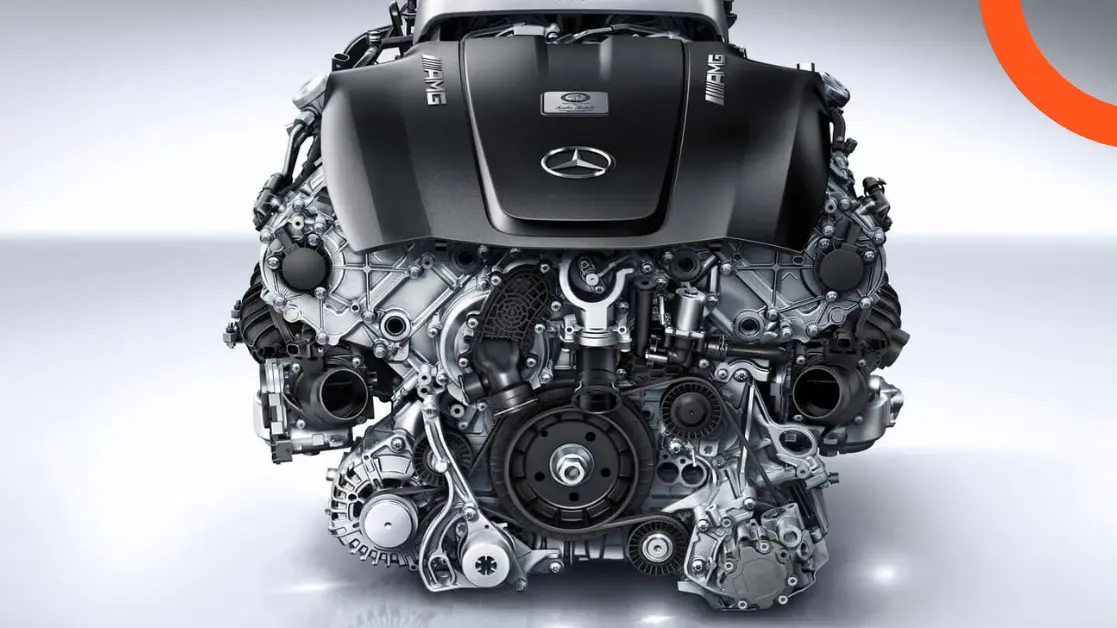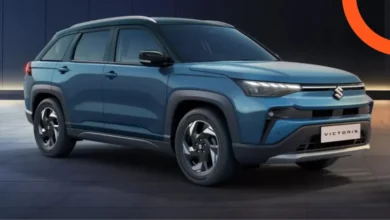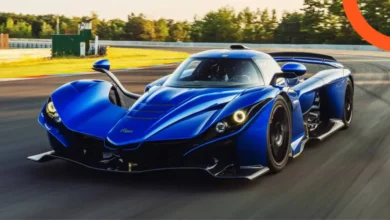Mercedes Unveils Its Most Powerful V8 Engine in History
For years, V8 engines have been the backbone of the highest-performing AMG models, with the name “AMG” associated for a long time with those mechanical beasts capable of generating tremendous power with an exhaust sound that has impressed worldwide. These engines have particularly excelled in models like the AMG GT, C63, E63, and others, blending instantaneous acceleration and high stability with advanced engineering techniques that have made them a benchmark in the high-performance engine sector.
However, the company’s recent decision to abandon the M177 V-8 engine in the C63 model and adopt a four-cylinder engine has garnered widespread criticism from fans of the brand and general sports car enthusiasts. With the rising calls for the return of the eight-cylinder engine, it was expected that Mercedes-AMG would respond in a manner befitting its reputation. Today, the company responds with a plan to produce a new, advanced V-8 engine, the result of more than ten years of continuous experience and innovation in this field.
Previous V-8 Engines from Mercedes-AMG: A Legacy of Engineering Excellence
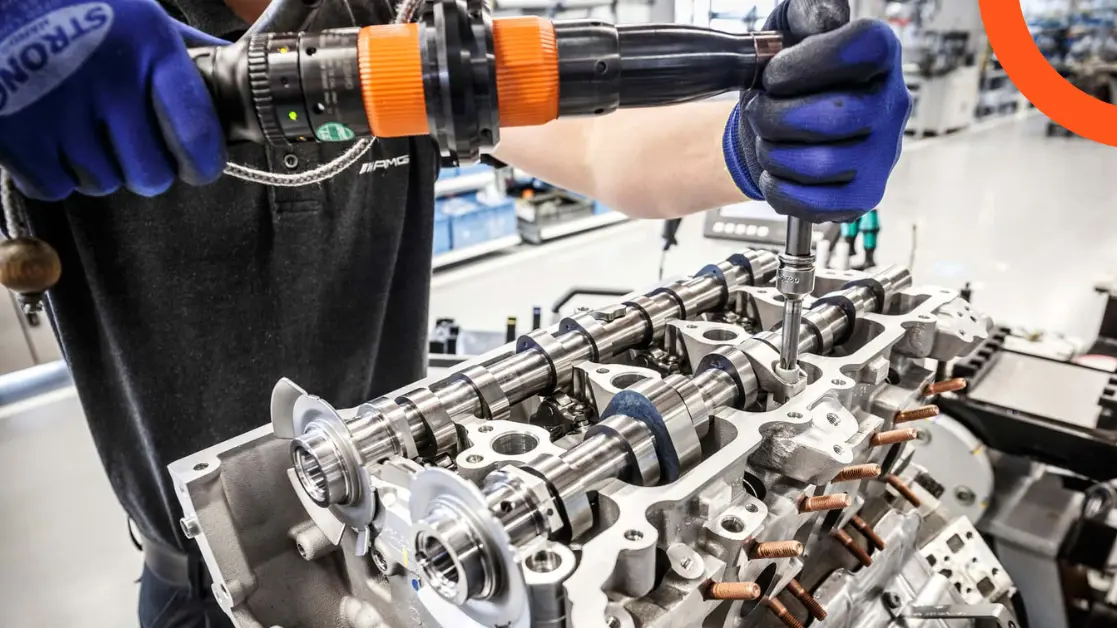
Since 2014, the M178 eight-cylinder engine with a 4.0-liter capacity and twin turbochargers has achieved significant successes across multiple models, peaking in the AMG GT Black Series with an output of 720 horsepower. This engine represents the pinnacle of what the company has achieved in mechanical design and thermal innovation, particularly due to its flat-plane crankshaft, which enhances the engine’s response and distinctive tones. Furthermore, other companies have utilized a modified version of it; Aston Martin has used it in the Valhalla model with an output of up to 817 horsepower, showcasing the versatility and superiority of this engine compared to competitors.
- M178 Engine: 4.0 liters, twin-turbocharged.
- Maximum power in Mercedes models: 720 horsepower (AMG GT Black Series).
- Aston Martin modification (Valhalla): 817 horsepower.
- Technologies: Flat-plane crankshaft, high durability, and response.
These capabilities have placed Mercedes-AMG at the forefront of companies capable of producing high-efficiency and performance engines, making it a target for comparisons from various competing brands like BMW, Audi, and even English and Italian companies.
New Generation
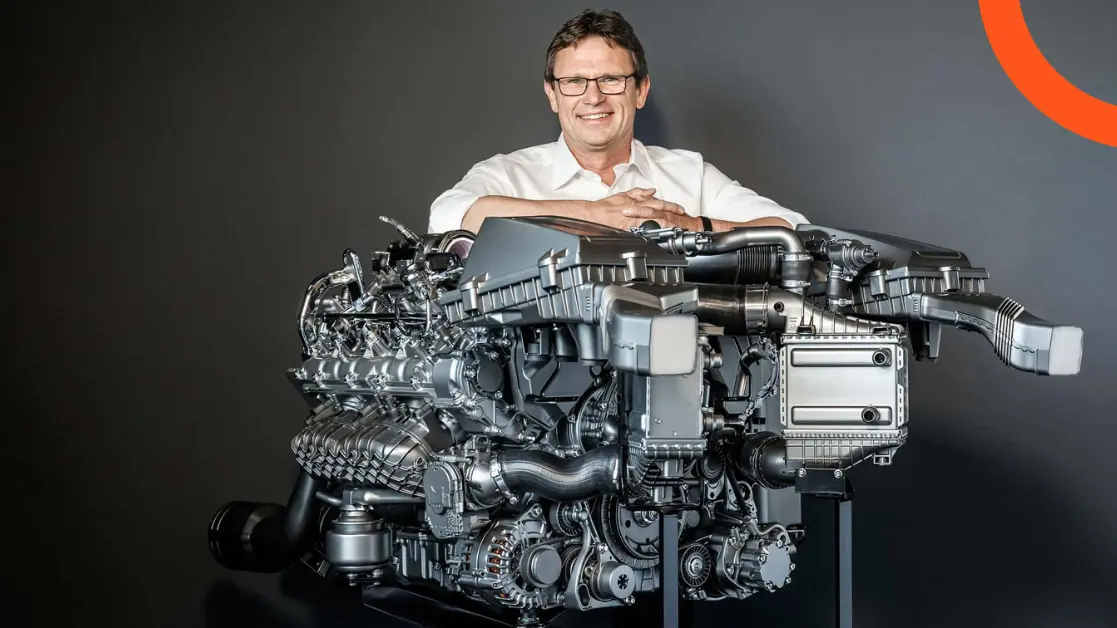
Mercedes-AMG is currently developing a new eight-cylinder engine (currently code-named “M179”), expected to be launched in late 2027. According to the statements from the Head of Vehicle Development at AMG, this new engine is set to outperform all predecessors in performance and will be specifically designed for high-performance models built on the advanced AMG.EA platform, meaning full integration with electric and hybrid systems to enhance efficiency and responsiveness.
Some of the major features of this anticipated generation include:
- Providing the car with more power than all previous versions of the AMG GT Black Series, meaning over 720 horsepower.
- Faster throttle response and noticeable improvement in reaction during acceleration or braking.
- Advanced technologies to achieve better fuel efficiency and compliance with strict Euro 7 environmental standards.
- Integration of modern electrical systems to improve performance without sacrificing the essence of V-8 engines.
- Continuity of production for at least the next decade, confirming Mercedes’ commitment to the traditional system in the face of ongoing customer demand.
An analysis of these points confirms that Mercedes-AMG is not just satisfied with raising horsepower numbers; it has also focused on the overall dynamics of how the car responds, and how connected the engine is to the vehicle’s other systems, in order to deliver a driving experience that meets the demands of the world’s most discerning drivers.
Power and Performance
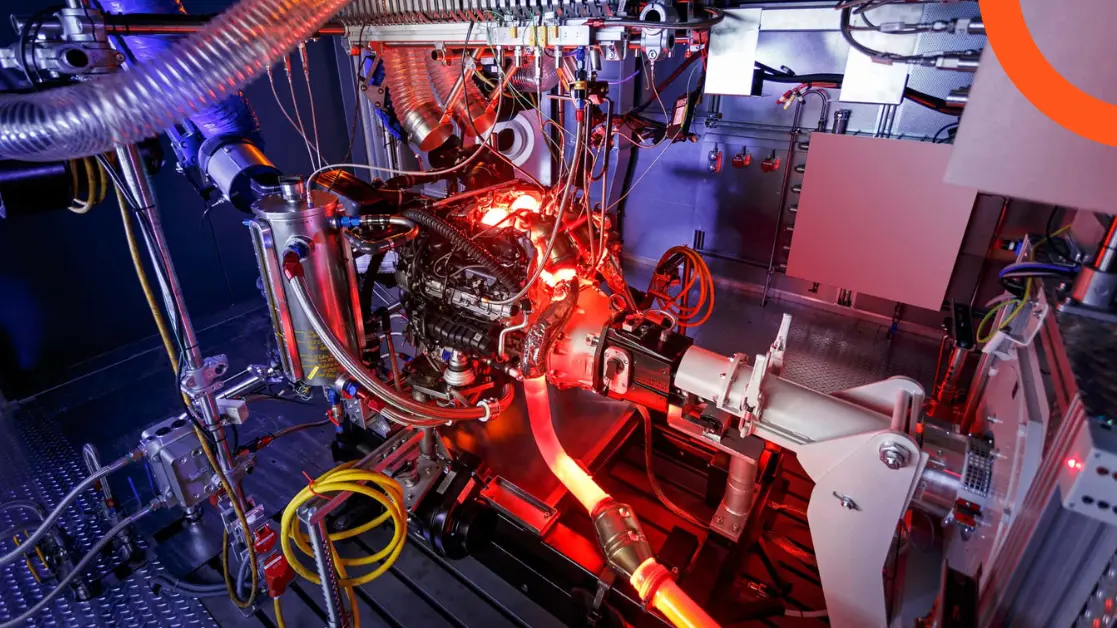
There is no doubt that the most important aspect for sports car enthusiasts when discussing the V-8 engine from Mercedes-AMG is absolute performance, and how it surpasses competitors both on the road and the track. Although accurate official figures regarding the next generation are not available yet, current indications confirm that it will outperform its predecessor in terms of horsepower and responsiveness while maintaining better fuel efficiency rates.
| Specification | Value |
|---|---|
| Engine Capacity | 4.0 liters (twin-turbocharged, reference to the previous generation) |
| Previous Maximum Power | 720 horsepower (AMG GT Black Series) |
| Expected Maximum Power | More than 720 horsepower |
| Key Technologies | Advanced hybrid system, enhanced throttle response, higher fuel efficiency |
| Emission Standards | Compliance with Euro 7 |
| Continuity | For at least the next decade |
Comparison with Competitors’ Engines in the Luxury/Sport Class
When comparing this new engine with the top contenders in the luxury sports car sector, such as V-8 and V-12 engines from brands like BMW “M,” Audi “RS,” and even Aston Martin and Ferrari, we find that Mercedes-AMG excels in technical diversity, as it integrates advanced electrical systems to achieve optimal consumption while preserving the performance character of traditional engines.
For instance, some competing companies have moved towards hybrid technologies or complete transitions to smaller turbocharged engines, but at the cost of losing some of the character, sound, and experience of classic V-8 engines, which AMG seeks to preserve while improving environmental and practical aspects in a balanced manner.
- In comparison with Aston Martin, the latter has managed to exceed 800 horsepower via a modified version of the M178, yet Mercedes-AMG promises even greater superiority for the next generation.
- BMW M engines feature twin-turbocharging technologies and advanced thermal engineering, but they do not offer long-term continuity for V-8 engines under the pressures of upcoming environmental regulations.
- The sound and torque of traditional AMG engines remain central to the driving experience, with the development of precise electronic responsiveness technologies.
This uniqueness confirms that performance enthusiasts have a real opportunity to enjoy tremendous power without sacrificing sustainability.
Future of AMG V-8 Engines Under the New Environmental Regulations
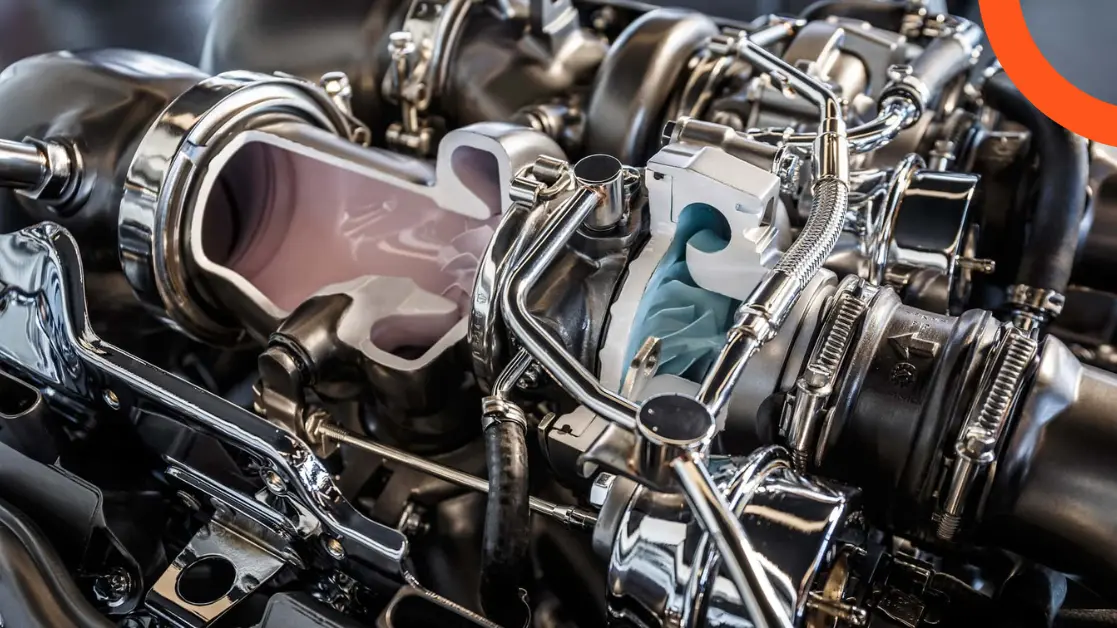
The traditional engine sector faces increasing challenges with the introduction of the Euro 7 emission regulations, which impose strict limits on harmful gases and fuel consumption. Nevertheless, the leaders of Mercedes-AMG are determined to maintain the company’s legacy by continuing to produce V-8 engines for a long time, emphasizing that there is still a segment that prefers pure eight-cylinder vehicles and rejects a full shift to smaller or entirely electric engines.
The current strategy relies on mixing fuel efficiency with tremendous power, as the CEO of AMG explained in a press interview that demand for V-8 engines remains high, which has prompted the company to stay on the path of excellence and develop the new generation with greater capacity and power, alongside support with hybrid technologies to ensure future compliance with environmental standards.
This proactive step provides AMG with a competitive edge against car companies that may completely abandon internal combustion engines in the coming decade, allowing it to maintain a large base of loyal customers and expand into new markets that have not yet enforced strict regulations.
Comment on the Continuation of V-12 Engines in Mercedes’ Plans
Despite the widespread talk about the future of V-8 engines, Mercedes officials confirm that the giant V-12 engines (6.0-liter twin-turbo M279) will not disappear anytime soon, but will remain exclusive to the highest luxury models such as Maybach S-Class and the armored S-Class Guard for special protection. The decision to limit V-12 availability to specific markets relates to European environmental challenges, reflecting the company’s commitment to meet the desires of the most distinguished segments of its clients worldwide, especially in the Gulf region, China, and North America.
- V-12 Engine (M279): 6.0 liters, twin-turbo, available exclusively in specific models.
- Continuing in selected markets away from strict European regulations.
- Maybach S-Class and S Guard armored series are the flagship carriers of this engineering icon.
This diversity highlights Mercedes’ strategic flexibility and ability to blend tradition and innovation to anticipate changes in the global luxury car market.
Impact of the Shift Towards Electric and Hybrid Engines on AMG’s Identity
As the pace of the transition towards electric and hybrid vehicles accelerates in various global markets, the question of identity remains firmly among AMG’s audience and clients: Can the brand maintain its unique character even as advanced hybrid systems are integrated into its highest-performing models? In fact, Mercedes has clarified its vision through the design of the upcoming engine to be “electrified” and fully built to balance tremendous power with modern energy efficiency.
This means that the engine will benefit from a complete electrical system, whether to enhance instant acceleration or to achieve energy recovery during braking, alongside minimizing fuel consumption. Meanwhile, engineers will need to maintain the spirit and sound of the iconic AMG engines, employing advanced technical solutions that many competing brands have not yet succeeded in providing with the same depth and emotional impact for drivers.
This vision enables AMG to retain its historical appeal among both the young and classic performance enthusiasts while demonstrating a proactive commitment to its responsibilities towards the environment and modern technologies.
Customer Feedback and Lessons from the Transitional Phase
Mercedes-AMG learned an important lesson when it presented the C63 four-cylinder engine instead of the traditional V-8 engine, facing lukewarm responses from performance enthusiasts due to the demolition of the mental picture of AMG’s powerful and adventurous character. Through the statements of the company’s officials, it became clear there is a greater need to articulate and explain the reasons for making such technical decisions, especially when introducing complex systems like the hybrid four-cylinder engine in the C63 and GLC 63, which did not receive full support from the public.
Experience shows that the emotional legacy of V-8 engines transcends numerical performance limits, reaching the memories and imaginations of car enthusiasts worldwide, and that any future transition towards new engines must consider this aspect and explain their technical details adequately to AMG’s loyal audience.
Retaining Mercedes’ Internal Combustion Engines: Global Market Challenges
With rapid changes in international markets and tightening environmental laws, Mercedes-AMG realizes that some markets still prefer cars with larger traditional engines. Therefore, AMG leaders have stated they will continue to produce and sell V-8 cars as long as there is actual customer demand, granting the brand exceptional strategic flexibility compared to many competitors who have announced final dates to halt production of internal combustion engines.
The expectation of continuing V-8 engine production for at least a decade offers customers peace of mind and the willingness to invest in a new AMG vehicle without fearing a halt in service or production in the near future.
Driving Experience and Practical Impact of the New Generation of V-8 Engines
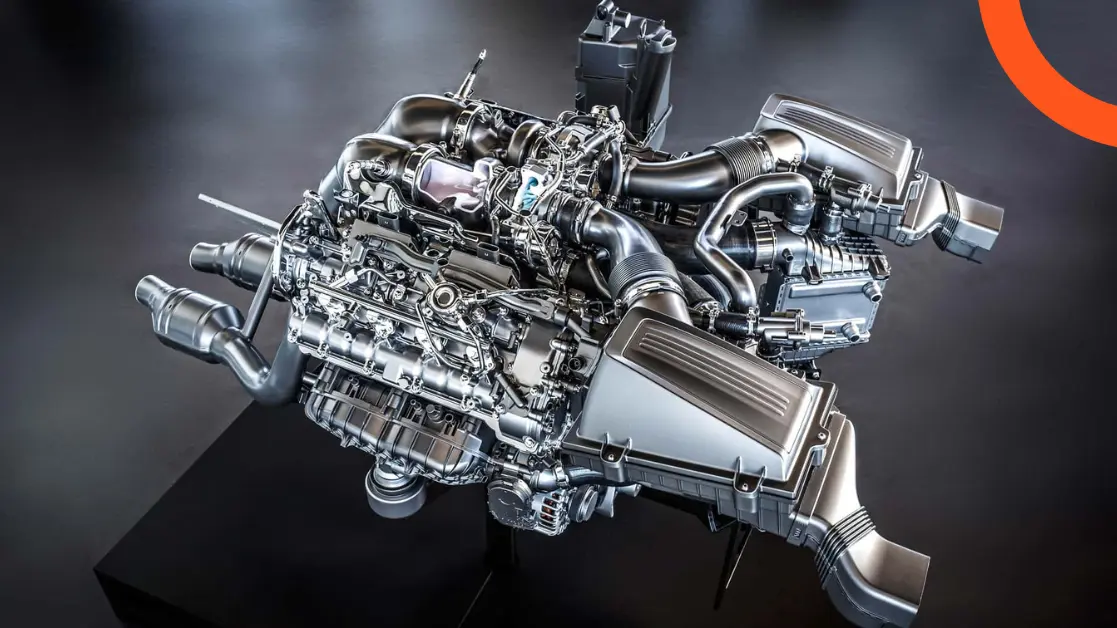
The promises of delivering power exceeding 720 horsepower and faster response translate practically into amazing acceleration and greater top speeds, with improved control in various driving conditions whether on highways or tracks. In addition, the immediate responsiveness of the pedal will create a more connected and sensory driving experience for the driver, enhancing the sense of confidence and control over the vehicle under various scenarios.
As for improved efficiency and lower fuel consumption, it means fewer stops at gas stations and reduced operating costs for a category that is considered among the highest in cost by nature. With a smart hybrid system that integrates electrical components, the driver will receive an electric boost to assist in situations of launching from a stop or quick overtaking, along with energy recovery features during braking or deceleration, reducing waste and enhancing the sustainability of the experience.
Future Predictions and Challenges Facing High-Performance Engine Development
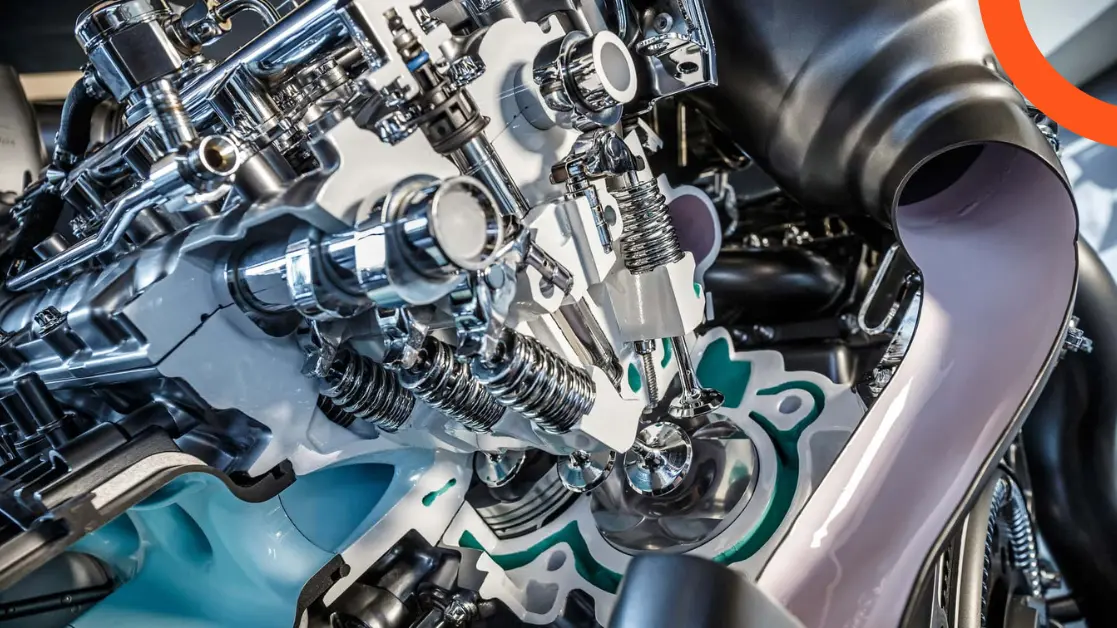
Radical shifts in the automotive sector contribute to reshaping the performance scene, as companies are required to maintain the power of engines and the distinctive sound of V-8 engines while adhering to efficiency and environmental sustainability requirements. While many companies have announced the date to halt production of such storied engines, Mercedes-AMG is employing all its engineering capabilities to merge the best of both worlds: remarkable classic performance and cutting-edge electric technologies.
The biggest challenge in the upcoming phase is to maintain performance excellence against reduced emissions, providing an authentic AMG experience for a generation that does not wish to give up the authenticity of sounds, torque, and the connection between man and machine, even in an era of digitally clean vehicles.
